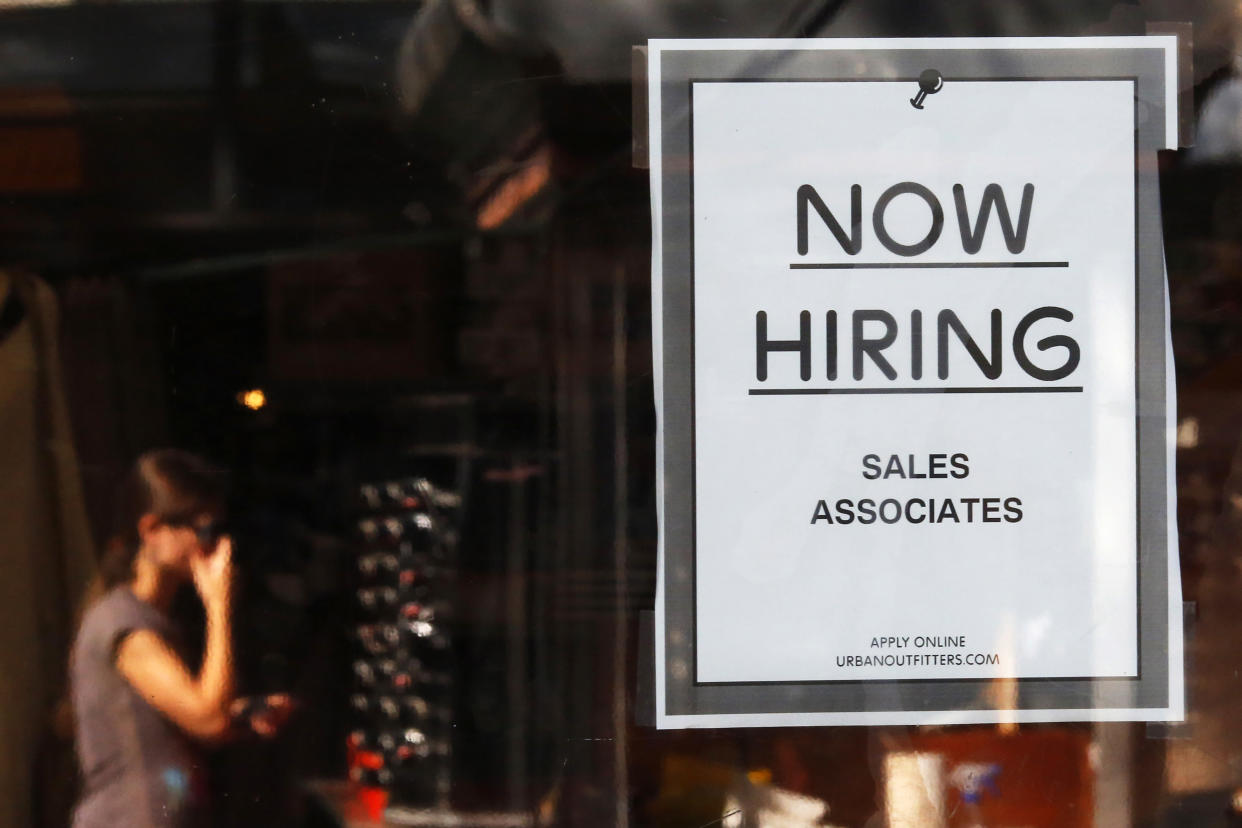Europe treads water as US economy adds 559,000 new jobs in May

European stock markets were quiet on Friday as the US economy added 559,000 new jobs in May, falling below expectations for the second month in a row.
Economists had expected around 650,000 new workers to be taken on last month, as the economy expanded strongly, but the figures still came in well above last month’s surprisingly low jobs.
April’s disappointing Non-Farm Payroll (NFP) has been revised slightly higher to show 278,000 new hires, up from 266,000.
The Bureau of Labour Statistics said there were “notable job gains” in leisure and hospitality, in public and private education, and in health care and social assistance as the US economy reopened.
In London, the FTSE 100 (^FTSE) closed flat after a lacklustre day, while the French CAC (^FCHI) edged just 0.1% higher on the day and the German DAX (^GDAXI) gained 0.4%.
Across the pond, the S&P 500 (^GSPC) climbed 0.7% at the time of the European close and the tech-heavy Nasdaq (^IXIC) surged 1.4%. The Dow Jones (^DJI) jumped 0.3%.
It came as the US unemployment rate fell to 5.8%, from 6.1%, versus a crisis peak of 14.8% and still leaving the labour market around 8 million jobs below pre-crisis levels.
Hinesh Patel, portfolio manager at Quilter Investors, said: “The bottom-line, and vindicating the Federal Reserve’s cautious stance, is we are not out of the woods yet. There is still a long way to go to recover.
"This was no normal crisis and as such there is little basis for what the recovery should or will be. As a result, we fully expect the fiscal and monetary taps to remain free flowing for the time being, and only once the horse has bolted will talk of cautiously turning them off begin to be entertained.”
Read more: May jobs report: Economy adds back 559,000 jobs, unemployment rate fell to 5.8%
The jobs data came as investors were also digesting the UK government’s review of the traffic light system for international travel and a possible reopening delay due to rising cases of the Delta variant.
Michael Hewson of CMC Markets said: "The only clouds on the horizon, apart from the rain-bearing variety, have been the performance of international travel stocks, which have continued to underperform after the UK government announced yesterday that no new countries would be added to the green travel list."
"The government also announced that a number of new countries had been added to the red list. "There are also concerns that we might see a delay to the 21st June reopening date, which is tempering the recovery for some parts of the UK economy.”
Watch: FTSE 100 'milestone' as it tops 7,000 mark for first time in more than a year
Read more: Travel stocks slump as Portugal axed from UK green list
Transport secretary Grant Shapps confirmed on Thursday that Portugal will be taken off the UK foreign travel green list from Tuesday.
The holiday destination is now on the amber list, meaning that travellers have to quarantine for 10 days on their return, as well as pay for two PCR tests.
Elsewhere, the US dollar hit a three-week high against the pound. The currency has been boosted to its highest level since mid-May by a series of strong economic data from the US prompting investors to expect the Fed may move towards tightening policy sooner than expected.
"The market is digesting strong economic data with some inflationary pressures and factoring in whether this will change the timing of Fed tapering and how to factor that into stock prices," Brad Neuman, director of market strategy at Alger in New York, told Reuters.
Asian shares were mixed on Friday, set back by a decline in technology stocks on Wall Street.
The Nikkei (^N225) ended 0.40% lower while the Hang Seng (^HSI) dipped 0.2% and the Shanghai Composite (000001.SS) edged 0.2% higher after Beijing proposed a reduction in stamp duty for led financial firms.
Watch: What are SPACs?


